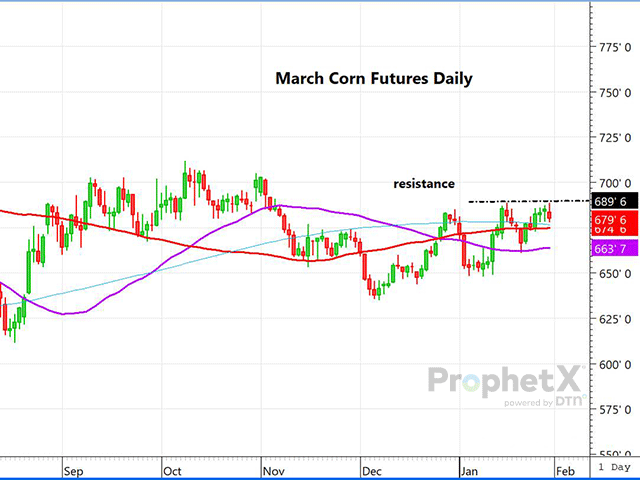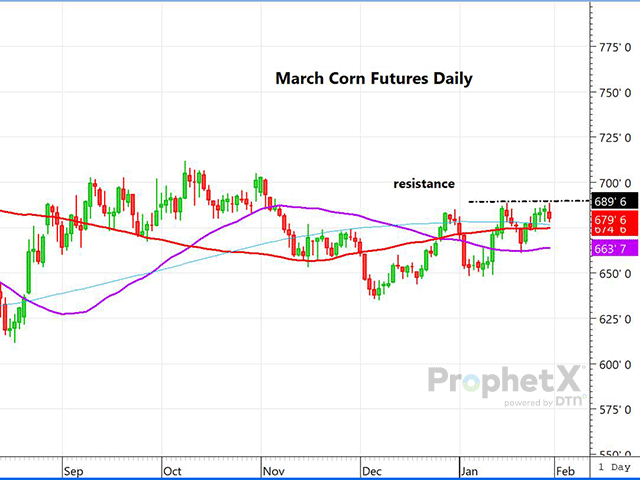Technically Speaking
March Corn Could Extend Late Day Weakness
The corn market has been up and down, but still in a minor uptrend, as traders determine how much Argentine corn could actually be lost. Recent Argentine rains have given a much-needed boost to soil moisture conditions and at least stabilized that corn crop. Much more rain is needed in February, but ahead of that, we should see showers there in the latter half of the week.
On a bearish note, U.S. export sales and shipments continue to underperform, as both Ukraine and Brazil have undercut U.S. corn offers for the last several months. Total corn commitments are still down 45% from a year ago, with inspections down 31% from last year. Last week's dismal inspection of 20.8 mb was the second lowest in 17 weeks, and it is becoming very likely that USDA will be forced to lower the corn export projection without a sharp uptick in sales soon.
March corn challenged the recent high near $6.88 3/4 again on Tuesday, only to finish nearly 9 cents below that mark. A rally above that level might just give us a shot at $7.00. However, a setback seems more likely following that poor close.
P[L1] D[0x0] M[300x250] OOP[F] ADUNIT[] T[]
For the last several weeks, soybean oil has been on the short end of the soybean meal/bean oil spread activity. The market action on Tuesday seemed to indicate that the tide may have turned. Funds sold soymeal while buying bean oil, pushing March up to the 20-day moving average. With a close above the 20-day, look for March bean oil to head to the 50-day average at 64.15 cents, or maybe even the 100-day average at 64.85 cents. As the demand for soybean oil in renewable biodiesel expands, oil should take the driver's seat on crush demand.
MARCH CHICAGO WHEAT FUTURES:With non-commercials now short over 48,000 contracts, and the largest short since May 2019, recent market action may be giving fund managers second thoughts about being this short in a market that has closed higher in five of the last six trading days, and closed right at the key 50-day moving average. A rally and close above the 50-day average could encourage funds to limit their losses and buy in some wheat. The fact that commercial firms are now net long a like amount in futures makes the position a dangerous one for funds.
One note of caution is that both Ukraine and Russia continue to wholesale wheat to world importers at bargain basement prices, holding wheat down.
**
Comments above are for educational purposes and are not meant to be specific trade recommendations. The buying and selling of grain and soybean futures involve substantial risk and are not suitable for everyone.
Dana Mantini can be reached at Dana.Mantini@dtn.com
(c) Copyright 2023 DTN, LLC. All rights reserved.






Comments
To comment, please Log In or Join our Community .